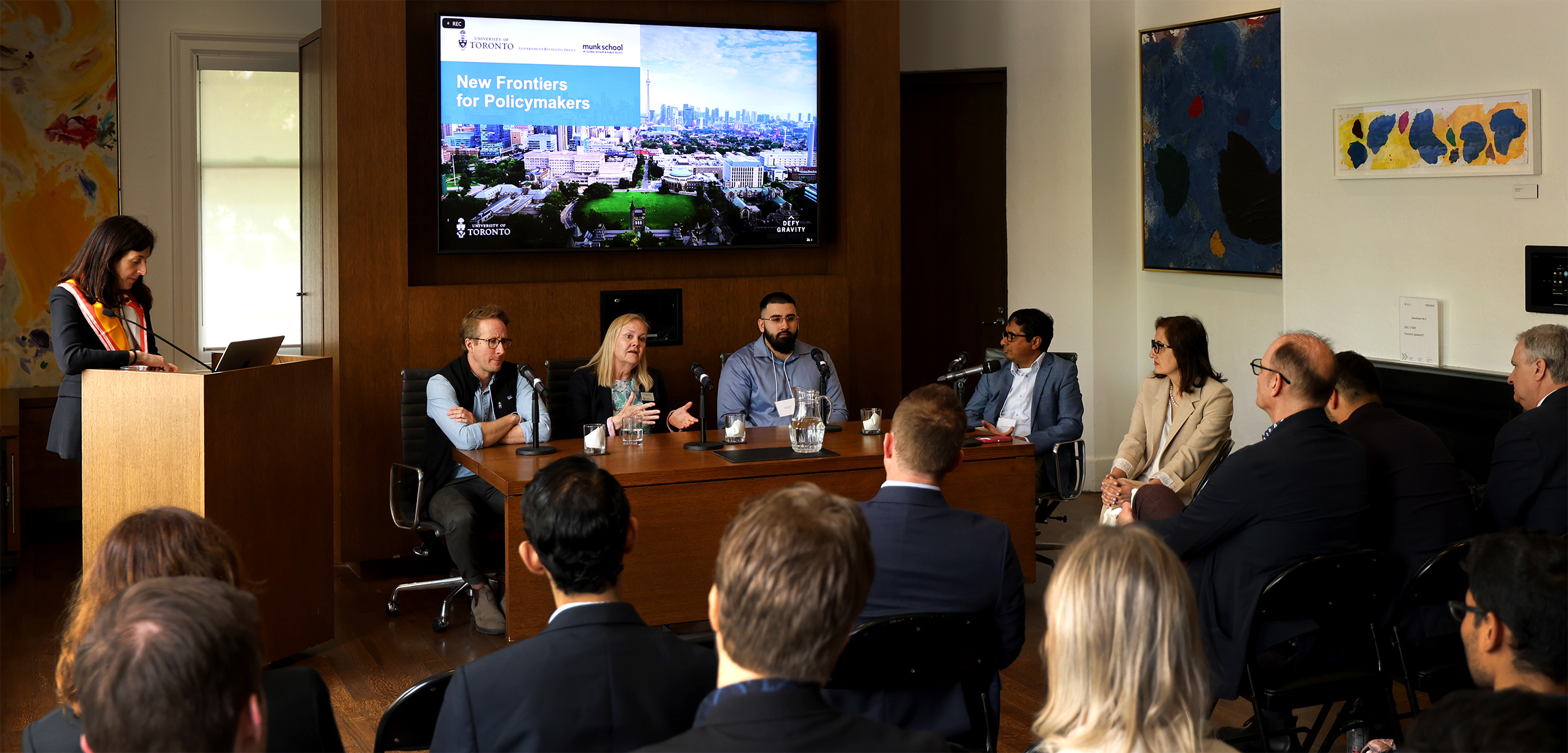Professors Lesley Warren and Sebastian Goodfellow headlined Powering the Future – Artificial Intelligence, Critical Minerals & Energy in Ontario’s Innovation Economy event at the Munk School of Global Affairs & Public Policy, exploring the critical role of minerals, energy and AI in Canada’s innovation economy. The session highlighted cutting-edge research, industry collaboration, and the need to bridge academia and commercialization to support Canada’s net-zero transition.

The Powering the Future – Artificial Intelligence, Critical Minerals & Energy in Ontario’s Innovation Economy session at U of T’s Munk School of Global Affairs & Public Policy brought together experts to explore the intersection of critical minerals, energy, and AI in Ontario’s innovation economy. The May 14, 2025 event began with a presentation by Professor Lesley Warren, who emphasized the foundational role of critical minerals in achieving Canada’s net-zero goals. She highlighted the importance of aligning academic research with industry priorities to support the development of a competitive, sustainable mining sector.
Professor Sebastian Goodfellow followed, sharing advancements in AI for mining from Kore Geosystems. He spoke about the transformative potential of digital technologies and how the Department of Civil and Mineral Engineering (CivMin) is training future mining engineers to meet the sector’s evolving demands. “It was a privilege to participate in this event and showcase the groundbreaking AI technology we’re developing at Kore Geosystems for the mining industry,” he stated. “I also emphasized the pressing need to bridge the gap between fundamental academic research and commercialization, enabling innovative technologies to emerge and transform the sector—innovation that is essential to growing and strengthening the Canadian economy at this critical time.”
Both CivMin professors participated in a panel Q&A alongside other presenters, including Shatha Qaqish-Clavering, Executive Director of Climate Positive Energy; Associate Professor of Economics Shari Eli; and Shah Nawaz A. from Siemens, who discussed the role of AI in grid modernization and Siemens’ partnership with the Energy Grid Modernization Centre. Hosted as part of the New Frontiers for Policymakers series, the event gathered stakeholders from academia, government, and industry to address the urgent infrastructure and policy challenges facing Canada’s energy and resource sectors.